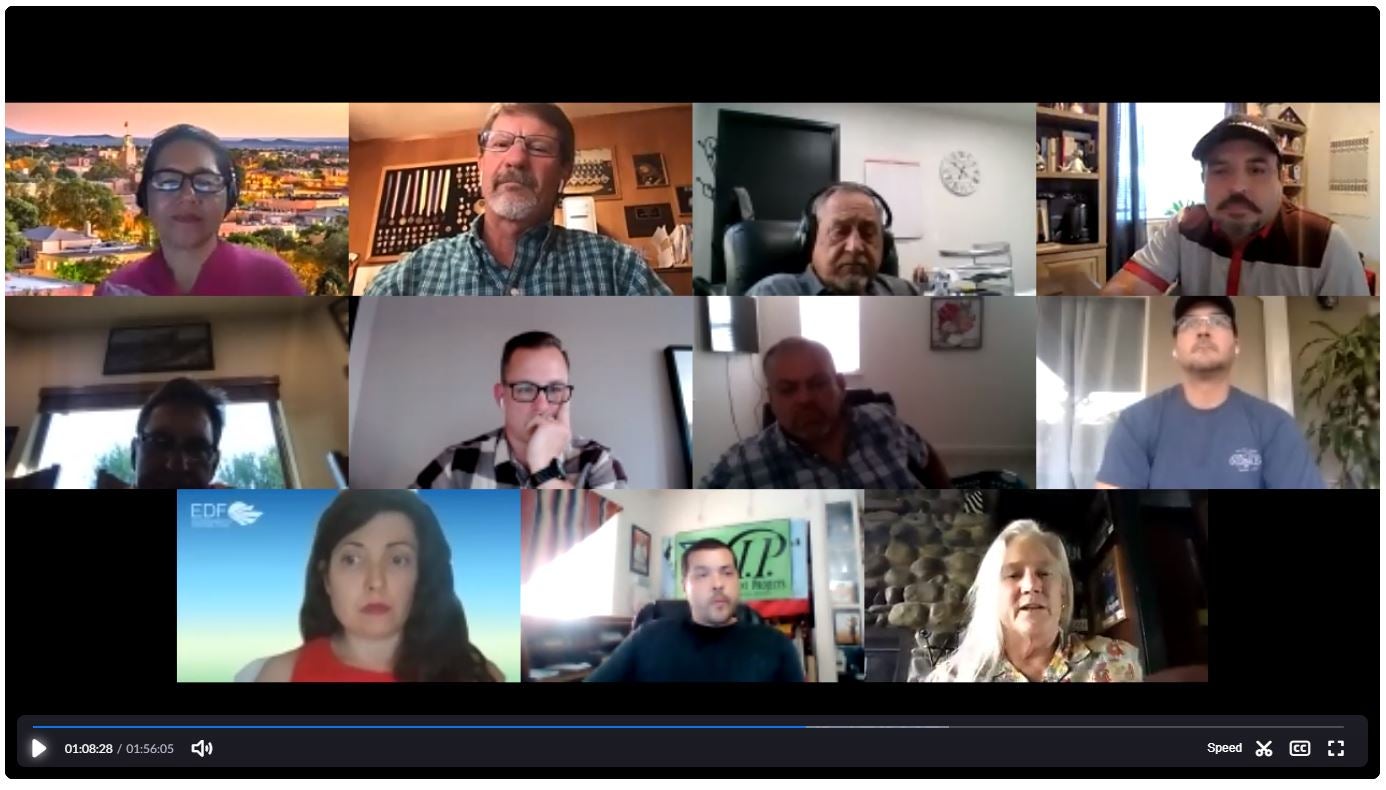Developing rural water leaders as drought and water scarcity intensify
An immigrant who left Mexico when he was young to make a new life in California. The owner of a small family farm who grew up in the Central Valley. A water utility operator who served in the Navy.
These are among the diverse participants who graduated at the end of July from our fourth cohort of the Water Leadership Institute, a program developed to help rural communities more effectively participate in water decision-making and policy.
EDF partnered with the Rural Community Assistance Corporation (RCAC) and Self Help Enterprises six years ago, after passage of California’s Sustainable Groundwater Management Act (SGMA), to develop the Water Leadership Institute. The West Turlock Groundwater Sustainability Agency (GSA) joined forces with EDF and RCAC to bring the institute to Stanislaus County for this fourth installment, which was hosted online due to COVID-19.
Over 15 weeks, I had the wonderful opportunity to get to know these leaders better as they developed skills and understanding that will help them become stronger advocates for their water resources and their communities.
Encouraging more community participation in water decision-making
SGMA was signed into law during the last drought to improve groundwater management and address decades of groundwater overpumping. The law specifically requires groundwater sustainability agencies to consider the interests of all groundwater users, including tribes and disadvantaged communities, and to document the opportunities they provided for public engagement and active involvement of diverse populations.
The West Turlock GSA was committed to meaningfully engaging a wide array of perspectives in SGMA and related water issues but needed help. So the GSA reached out to EDF and RCAC about bringing the Leadership Institute to its region as a way to reach new stakeholders and develop outreach ambassadors to help educate others about SGMA and encourage participation in development of the region’s groundwater sustainability plan, which is due to the state in January 2022.
With California now struggling through another severe drought, the West Turlock GSA’s work has become ever more urgent.
“It’s important for groundwater agencies to involve stakeholders while plans are being developed well before implementation of policies and projects that directly affect water users. We like to say, ‘If you eat food, drink water or grow crops, then SGMA matters to you,’” explained Herb Smart, a regulatory analyst with the Turlock Irrigation District.

Putting new skills to work
In our weekly sessions, the institute helped build leadership skills, understanding of groundwater resources and engagement strategies for rural community leaders to bridge the communications gap with policymakers. Guest speakers covered a wide variety of topics, from storytelling to salinity management.
Participants also brainstormed ideas for short-term community projects and ultimately chose two to implement.
The first is a program to teach local youth how their water system operates and how they can make a difference in their communities. The program, which includes a field trip to the local water district, aims to plant the seeds of water leadership early with the next generation.
The second project aims to promote a local nitrate testing program for well owners through video and print materials. Despite the importance of testing domestic wells for nitrates, many well owners haven’t had accessible information to take advantage of this program.
How the Water Leadership Institute empowers rural communities to more effectively participate in water decision-making and policy. Share on XThese are just a couple examples of the new solutions community members can develop when given the opportunity.
With SGMA, California entered a new era of water management, recognizing that water knowledge and decision-making shouldn’t be left to just engineers. We will come up with better, more durable solutions to our water challenges when we share knowledge and decision-making more broadly with the community members whose futures depend on decisions we make today.
Now a new cohort of graduates from the Water Leadership Institute in Stanislaus County has a group of peers to continue to learn from and possesses stronger leadership skills and deeper water knowledge to bring solutions to their communities. I can’t wait to see what they accomplish.










